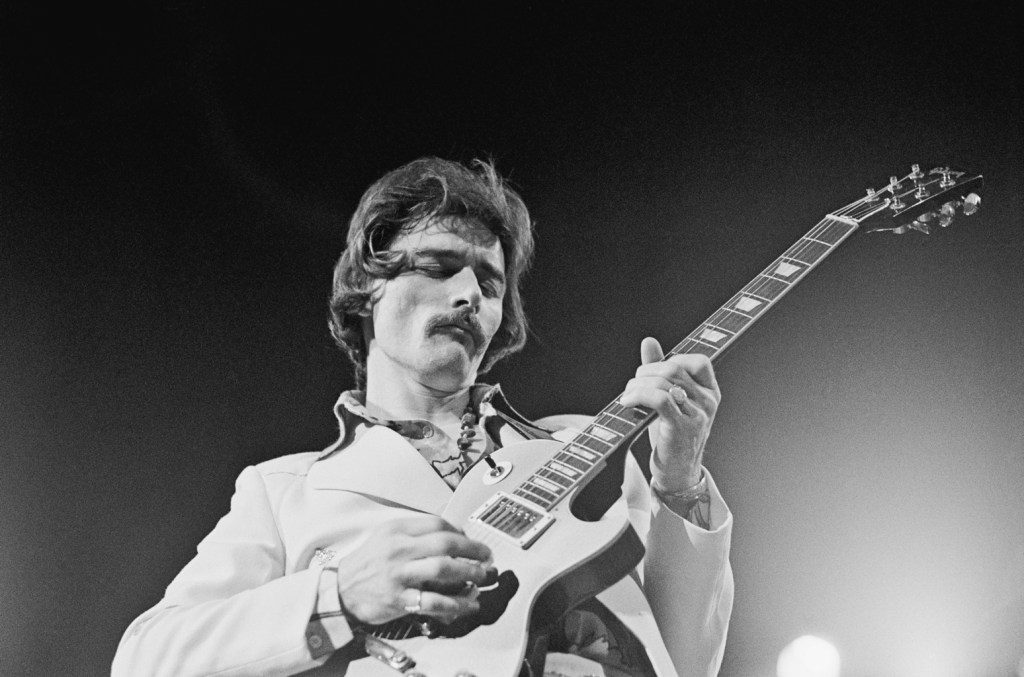Kelly Lee Owens says post-Brexit touring mess is “doing serious damage to individuals”
Kelly Lee Owens has spoken to NME about her recent decision to pull her upcoming European tour, citing the “serious damage” that Brexit is doing to artists and calling upon the UK Government for urgent action.
The row over the government’s failure to negotiate visa-free travel and Europe-wide work permits for musicians and crew in their post-Brexit deal continues to rumble on with no visible end in sight.
Last week saw the Welsh electro artist and producer Owens make headlines when she cancelled her upcoming November shows in the EU as a result of the coronavirus pandemic, Brexit and the “anxiety” they had created.
“After I posted that, a lot of people very kindly reached out to check in on how I was feeling and how I was doing,” Owens told NME. “What was interesting was that people picked up on my own personal anxiety being the main reason for why I’m not going to do this tour. That’s true to a degree, but basically it felt like the onus was on this as one individual’s problem, when really what I wanted to highlight was that this is actually a structural problem doing serious damage to individuals.
“My individual anxiety isn’t the thing that’s preventing me from touring, it’s a structural issue.”

Owens went on to describe how UK artists were at the mercy of “this beautiful cocktail of Brexit, a pandemic, music industry issues relating to streaming and artists being cornered into touring forever” – making the possibility of rising talent being able to grow all the more difficult.
“It’s this concoction of things which has literally become toxic to new and emerging artists,” she explained. “I can only speak for myself, but in going about booking an EU tour, it started to become too complex. I’d agreed to do it, I looked at the fees and I have to be honest and transparent because this is the time to be, but the fees weren’t great.
“The pandemic has really affected a lot of venues and promoters, so a lot of fees for a lot of artists have been reduced. That’s nobody’s fault, it’s just everyone trying to survive. I could just about do a combined UK and EU tour, but then it came to logistical aspects of it and you have to pay for things in advance. Instead of it being one continent, now we’re talking about individual countries with their own rules.”
Echoing a number of others’ fears that musicians and crew will face huge costs to future live music tours of the continent – which could create a glass ceiling that prevents rising and developing talent from being able to afford to do so – Owens added that she found the experience of booking an EU run to be too “complex”.
“I have quite a small touring party, but what has worried me is the fact that I tour with three or four people and this has badly affected me financially and made me emotionally and mentally say, ‘I can’t do this’,” she said. “I can’t imagine bands with five members plus crew being able to do this. It has shocked me that this is the first time that I’ve really understood the impact of Brexit. It’s incredibly worrying and difficult to think about moving forward.”

The artist went on to explain how she now “really worries about the bands of the future,” with the hindrance of Brexit potentially stopping some acts from growing and being forced to call it quits. “I’m not just talking about bands that haven’t even formed or written any music yet, but all of this will be just another loss and personally adds to the grief of it all,” she said.
“I come from a working-class background. I don’t have anything to fall back on financially. Everything I’ve done, I’ve done myself. I’ve done it for seven years completely self-funded. For people like me coming from places like I do, what’s going to happen to them in the future? The whole thing is just so devastating.”
Despite the global success of her acclaimed second record ‘Inner Song‘ (which landed in the top 10 of NME’s Best Albums Of 2020) Owens said that she “won’t even consider” looking into arranging shows on the continent with all the extra visas, carnets and work permits for each country until the pandemic has a resolution and stopped “putting an extra question mark of everything”.
“That’s not what any of my fans want to hear and not what I want to be saying, but I feel that I have a duty to publicly report that this is really real for people,” she admitted. “People might look at me and say, ‘Oh, we didn’t expect this to affect you – you seem to be doing well’. Yeah, I’m OK after a difficult year, but just with this toxic concoction I can’t even think about it until the pandemic is over.
She also called upon the UK government to urgently seek a solution, promising that musicians won’t stop pushing until an answer is found.
“We’re going to have to keep having this conversation until something changes because this isn’t sustainable in any sense,” she said. “This government have continually forced people into austerity and survival mode. They have never cared about the arts. It doesn’t serve them to have people with voices thriving, particularly people who most likely are not for them.”
Of the fact that it’s now been six months since the arts were essentially handed a ‘no deal’ over Brexit, Owens added: “It doesn’t surprise me, but it’s absolutely not good enough. I won’t rest – and I know a lot of other musicians who won’t rest – until something is done. Even if you just want to talk shop about how much money the industry brings in, you’d think that would give them some incentive – but I don’t think our government have ever really truly cared.”
This comes after last week saw a new poll show that the majority of UK voters want the government to be doing more to solve the post-Brexit touring fiasco for musicians and crew, while campaigners have vowed that their “anger is not going away until they find a solution”.
The government was also accused of treating the sector like “an afterthought” in Brexit negotiations compared to the £1.2billion fishing industry.
Responding to the criticisms at the time, a government spokesperson from the Department for Digital, Culture, Media and Sport claimed that they “had always been clear that the end of freedom of movement would have implications for professional mobility”.
A controversial issue throughout the continent, European festival promoters have said that they could be likely to book fewer UK acts as a result of Brexit, while figures from the UK music industry have expressed concern that the impact of the deal on musicians who might not be able to tour Europe could also potentially prevent them from acquiring a visa to play in the United States.
Bookers in Europe have told NME that “the effort should come from the UK” to overcome this.





